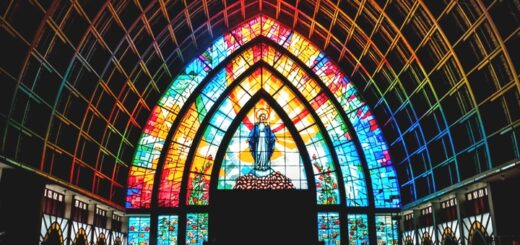Berlin, an oasis for fleeing LGBT refugees
Article by Annabelle Georgen published on the 360° magazine website (Switzerland) on 14 July 2016, free translation by Marco Galvagno
On the initiative of the (German) association Schwulenberatungberlin, which helps homosexuals, a reception center for gay refugees has opened its doors in the German capital. Ninety is the number of homophobic or transphobic attacks that were reported last year in refugee reception centers in Berlin. “But we think that in reality there were many more” explains Barbara Loth, state secretary for integration in the Land of Berlin.
“GLBT migrants don't know that they have the right to be protected against discrimination, so it doesn't occur to them to report what they suffer. It is only after having received them and spoken to them that they have the courage to file a complaint." It evokes the insults, threats, spitting and beatings that gay and trans asylum seekers suffer after they are identified by others. Repeated attacks which can lead to rape and which leave psychological consequences in the victims, who already have a difficult journey behind them: they have had to leave their country and their loved ones to escape discrimination. By requesting political asylum in Germany they hoped to have arrived in a safe place but instead they find themselves face to face with potential attackers again from the moment of arrival.
Promiscuity
In the dozens of emergency reception centers present in the German capital, they are forced to live in a condition of harsh promiscuity. In the old hangars of Tempelhof airport, for example, hundreds of migrants have been crammed for several months, who have to share boxes of a few square meters, in which many bunk beds are piled up. The entrance is separated from the space in front only by a large fabric curtain, there is no entrance door that can be closed. In these conditions, gay and trans refugees have no space to take refuge in case of danger.
“We want to protect these people, starting from day one. The best thing to do was to create a place where they could be safe, not be attacked every second,” insists Barbara Loth. This place opened its doors in February in the quiet neighborhood of Trephow. Rented by the Land of Berlin, which has undertaken to pay the costs for the next 5 years, the center is managed by the Schwulenberatungberlin association.
“The residents know that we are among ourselves here. All the people who work here are gay, lesbian and trans, this is very important in our eyes" explains Marcel De Groot, director of this association that helps homosexuals. He says that last spring, when word came that there was also a heterosexual among the latest refugees welcomed into the facility, panic spread among the refugees. “ Some of the people we spoke to had tragic experiences: some saw their companions killed by ISIS militants before their eyes.
Security
The address of the center is kept secret, the entrances and exits of residents and visitors are strictly controlled by the security service. Currently around fifty people live there divided between around thirty rooms and mini apartments that accommodate from 4 to six people. The majority of residents are very young and come not only from Arab countries, but also from Russia, Turkey, Serbia and Turkumenistan.
In the common room of this brand new building, a blackboard shows various initiatives: German courses, brochures of GLBT sports associations, suggestions for cultural visits, a handwritten notice also informs that at Schwutz, the largest gay nightclub in Berlin, refugees politicians have preferential rates.
All these documents are translated into both English and Arabic and invite young people not to remain closed in on themselves, but to join the large gay community of the city. Marcel De Groot is very keen: “We teach residents how to defend themselves in the event of an attack and we explain to them who they should turn to. Our idea is to combine habitat and responsibility."
Original text: A havre de paix






